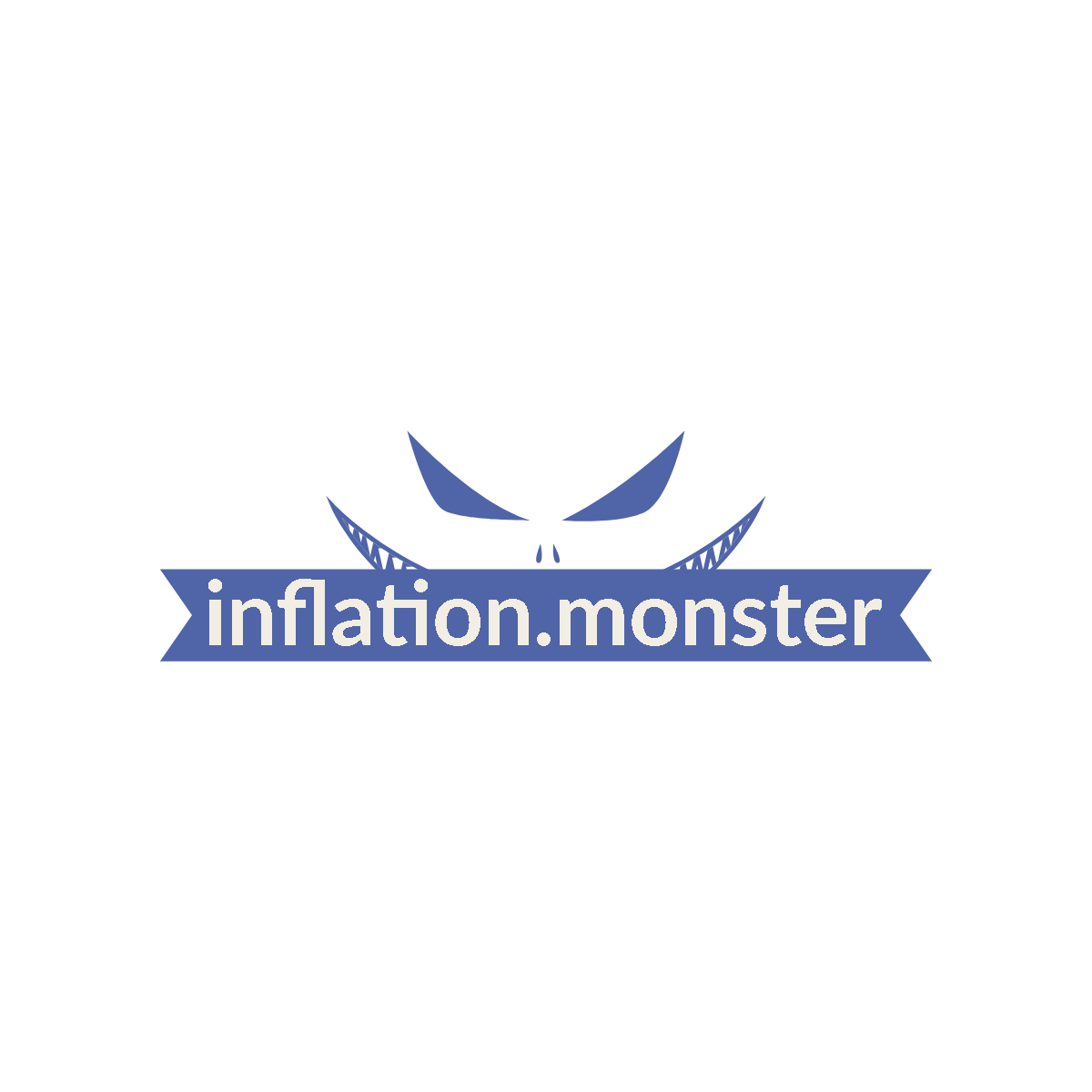Inflation, a formidable creature that haunts the world of economics, has undoubtedly left its mark on various sectors. But one area that is particularly vulnerable to its grasp is healthcare. The rising costs of medical treatments and services have been a cause of concern for individuals, businesses, and governments alike. In this article, we will explore the intricate relationship between inflation and the economics of healthcare, shedding light on the challenges faced and potential solutions in this ever-evolving landscape. So, buckle up as we embark on a journey through the tangled web of rising prices and the impact it has on our well-being.

Understanding Inflation
The definition of inflation
Inflation refers to the sustained increase in the general price level of goods and services over a period of time. It is commonly measured by the inflation rate, which indicates the percentage change in prices over a specific period, typically a year. Inflation erodes the purchasing power of money, as it reduces the amount of goods and services that can be purchased with the same amount of currency.
Types of inflation
There are various types of inflation that can occur in an economy. Demand-pull inflation occurs when the demand for goods and services exceeds the supply, leading to an increase in prices. Cost-push inflation, on the other hand, arises from increases in production costs, such as wages or raw material prices, which are then passed on to consumers. Built-in inflation occurs when inflation expectations become ingrained in the economy and are reflected in wage and price increases.
Causes of inflation
Inflation can be caused by several factors. One of the primary drivers of inflation is excess demand in the economy, where consumers have more money to spend, leading to increased competition for goods and services. Additionally, inflation can be influenced by changes in production costs, such as wages, energy prices, or raw material costs. Monetary factors, such as an increase in the money supply or changes in interest rates, can also impact inflation.
Effects of inflation on the economy
Inflation can have significant effects on an economy. When prices rise, individuals may experience a decrease in purchasing power, reducing their standard of living. Additionally, inflation can make planning and budgeting more challenging for businesses and consumers alike. Inflation may also lead to income redistribution, as some individuals or groups may benefit from rising prices while others are adversely affected. Moreover, high inflation rates can create uncertainty and hinder investment and economic growth.
Introduction to Healthcare Economics
What is healthcare economics?
Healthcare economics is a field that examines the production, distribution, and consumption of healthcare goods and services. It applies economic principles and theories to health-related issues, including healthcare costs, accessibility, efficiency, and the allocation of resources within the healthcare system. Healthcare economics seeks to understand the incentives and behaviors of individuals, healthcare providers, insurers, and policymakers in the healthcare sector.
Importance of healthcare economics
Healthcare economics is essential for understanding the complexities of the healthcare system and addressing its challenges. It helps policymakers and healthcare professionals make informed decisions on resource allocation, healthcare delivery, and financing. By analyzing the costs and benefits of different healthcare interventions, healthcare economics can guide the development of efficient and equitable healthcare policies.
Key concepts in healthcare economics
Several key concepts are integral to healthcare economics. One is the concept of demand and supply, which determines the quantity of healthcare goods and services and their corresponding prices. Another important concept is healthcare expenditure, which encompasses both the public and private spending on healthcare. Cost-effectiveness analysis and cost-benefit analysis are also crucial tools in evaluating the efficiency and value of healthcare interventions.
Role of government in healthcare economics
The government plays a significant role in healthcare economics through its regulation and funding of the healthcare system. Governments set policies that affect healthcare delivery, financing, and access. They also provide insurance coverage through public programs, fund research and development, and regulate the quality and safety of healthcare services. Government intervention in healthcare economics varies across countries and depends on the specific healthcare system in place.

Relationship Between Inflation and Healthcare
Inflation’s impact on healthcare costs
Inflation can have a substantial impact on healthcare costs, as it affects the prices of medical goods and services. The rising prices of pharmaceuticals, medical devices, and hospital services can significantly contribute to increasing healthcare expenditure. Moreover, healthcare providers may face higher costs for labor, energy, and supplies, which can lead to higher charges passed on to patients or insurers.
Factors causing healthcare inflation
Several factors contribute to healthcare inflation. Technological advancements in healthcare, while beneficial, often come with a high price tag, as new technologies can be expensive to develop and implement. The increasing demand for healthcare services, driven by factors such as an aging population or the prevalence of chronic diseases, also puts upward pressure on healthcare prices. Furthermore, rising pharmaceutical prices, often influenced by factors such as research costs or monopoly power, contribute to healthcare inflation.
Effect of healthcare inflation on the economy
Healthcare inflation can have significant effects on the overall economy. As healthcare costs rise, individuals and businesses may experience financial strain. Higher healthcare expenditure for individuals can result in reduced discretionary spending, impacting other sectors of the economy. Moreover, businesses may face increased costs for providing healthcare coverage to their employees, potentially affecting profitability and hiring decisions.
Inflation’s impact on healthcare accessibility
Inflation can also impact healthcare accessibility, particularly for vulnerable populations. As healthcare costs rise, individuals without adequate insurance coverage or limited financial resources may face difficulties accessing necessary healthcare services. Consequently, healthcare disparities may widen, with those unable to afford high-cost care experiencing barriers to receiving timely and appropriate treatment.
Inflationary Pressures in the Healthcare Industry
Technological advancements in healthcare
Technological advancements in healthcare have led to improved diagnoses, treatments, and patient outcomes. However, these advancements often come at a high cost, contributing to healthcare inflation. Developing and implementing new medical technologies, such as advanced imaging devices or innovative surgical techniques, requires significant investment, which is reflected in higher healthcare prices.
Increasing demand for healthcare services
The demand for healthcare services has been on the rise in many countries due to various factors. The aging population, for example, is driving the need for more healthcare services to address age-related conditions and chronic diseases. Additionally, lifestyle changes and the globalization of unhealthy habits, such as sedentary lifestyles or poor diets, have led to increased healthcare utilization. The growing demand for healthcare services strains resources and contributes to rising healthcare costs.
Rising pharmaceutical prices
Pharmaceutical prices have been a major contributor to healthcare inflation. Factors such as research and development costs, regulatory requirements, and intellectual property rights can drive up the prices of prescription drugs. Additionally, the concentration of market power in the pharmaceutical industry and the lack of competition can enable drug manufacturers to set higher prices, further exacerbating healthcare inflation.
Challenges facing healthcare providers
Healthcare providers face numerous challenges in managing healthcare inflation. They must navigate the rising costs of medical supplies, equipment, and technology, which can strain their financial resources. Providers also face workforce-related pressures, as attracting and retaining healthcare professionals becomes more challenging amidst rising labor costs. Furthermore, reimbursement rates from insurers or government programs may not keep pace with healthcare inflation, impacting the financial viability of healthcare organizations.

Inflation and Health Insurance
The link between health insurance and inflation
Health insurance and inflation are closely interconnected. As healthcare costs rise due to inflation, health insurance premiums tend to increase to cover these higher costs. Insurance companies pass on the increased expenses to policyholders through premium adjustments. Consequently, healthcare inflation directly affects the affordability of health insurance coverage for individuals and families.
Premium increases due to healthcare inflation
Healthcare inflation impacts health insurance premiums by adding to the overall cost of providing coverage. Insurers factor in the rising costs of medical services, pharmaceuticals, and other healthcare inputs when determining premiums. As healthcare inflation continues, premiums can increase significantly, putting pressure on individuals and employers who struggle to afford coverage.
Implications for individuals and families
The impact of healthcare inflation on health insurance premiums can be burdensome for individuals and families. Higher premiums mean a larger portion of income dedicated to health insurance costs, potentially reducing disposable income. Individuals and families may also face difficult decisions regarding their coverage, with some choosing to forgo insurance or opt for lower coverage options due to rising costs.
Efforts to control health insurance premiums
To mitigate the effects of healthcare inflation on health insurance premiums, various efforts have been made. Some strategies focus on controlling healthcare costs, such as promoting preventive care, implementing care coordination programs, or encouraging the use of generic drugs. Others aim to improve the efficiency and transparency of the health insurance market, enabling individuals and employers to make informed decisions and compare options effectively.
Government Policy and Healthcare Inflation
Healthcare policy and inflation
Government policies play a crucial role in shaping healthcare inflation. Policy decisions regarding healthcare financing, regulation, and reimbursement rates can influence the overall cost of healthcare. For example, policies that incentivize preventive care or the use of cost-effective treatments can help control healthcare inflation. However, policies that result in excessive administrative burdens or create barriers to competition may contribute to rising costs.
Role of government regulation
Government regulation is a key tool in managing healthcare inflation. Regulations aim to ensure quality and safety standards in healthcare delivery, protect consumers from fraud and abuse, and promote fair competition within the healthcare market. Well-designed regulations can help control costs by setting reimbursement rates, promoting value-based care, and addressing market failures. However, excessive or ineffective regulations may add to administrative burdens and increase healthcare costs.
Effectiveness of government interventions
The effectiveness of government interventions in addressing healthcare inflation varies depending on the specific policies implemented. Some interventions, such as price controls on pharmaceuticals or negotiated reimbursement rates for healthcare services, can have a direct impact on cost containment. However, the unintended consequences of these interventions, such as reduced innovation or limited access to care, must also be considered.
Potential policy solutions
Addressing healthcare inflation requires a comprehensive approach that encompasses various policy solutions. These may include enhancing price transparency in the healthcare market, promoting competition among healthcare providers, encouraging the adoption of value-based care models, and implementing reforms to pharmaceutical pricing. Additionally, policies that improve healthcare efficiency, reduce administrative burdens, and enhance preventive care can contribute to long-term cost containment.
International Perspectives on Healthcare Inflation
Comparison of healthcare systems and inflation rates
International perspectives provide valuable insights into healthcare inflation and the different approaches taken by countries. Comparing healthcare systems and inflation rates across nations allows for an examination of various factors influencing healthcare costs, such as different financing mechanisms, payment systems, or government interventions. These comparisons can offer lessons and best practices for addressing healthcare inflation.
Lessons from countries with lower healthcare inflation
Countries with lower healthcare inflation rates can provide valuable lessons for addressing rising healthcare costs. These countries often prioritize preventative care, emphasizing early intervention and wellness programs. Moreover, they implement strategies to promote competition among healthcare providers and pharmaceutical companies, resulting in greater affordability and cost containment.
Global efforts to address healthcare inflation
Efforts to address healthcare inflation go beyond national borders, as countries collaborate on global initiatives. International organizations, such as the World Health Organization (WHO) and the Organization for Economic Cooperation and Development (OECD), facilitate cooperation and knowledge-sharing among countries. These organizations focus on analyzing healthcare systems, identifying best practices, and promoting strategies to address healthcare inflation on a global scale.
Implications for healthcare policy
International perspectives on healthcare inflation have several implications for healthcare policy. Policymakers can draw on successful strategies implemented in other countries to inform their own policies. Furthermore, cross-border collaborations and knowledge-sharing can foster innovation and promote the adoption of best practices, ultimately contributing to more effective and efficient healthcare systems globally.
Impacts of Healthcare Inflation on Different Stakeholders
Effect on patients/consumers
Healthcare inflation can have significant effects on patients and consumers. Rising healthcare costs may result in financial burdens, as individuals and families struggle to afford necessary care. High healthcare prices may also lead to delayed or foregone treatments, compromising health outcomes. Moreover, individuals with limited financial resources may face difficulties accessing essential healthcare services, exacerbating healthcare disparities.
Impact on healthcare providers
Healthcare providers bear the direct impact of healthcare inflation. Rising costs for medical supplies, equipment, and technology can strain their financial resources. Providers may also face challenges in attracting and retaining healthcare professionals due to rising labor costs. Additionally, reimbursement rates from insurers or government programs may not keep pace with healthcare inflation, creating financial uncertainty for healthcare organizations.
Challenges for insurers and payers
Insurers and payers face significant challenges in the face of healthcare inflation. As healthcare costs rise, insurers may struggle to strike a balance between adequate coverage and affordable premiums. The need to adjust premiums to cover increasing expenses can result in affordability issues for policyholders. Payers, including employers providing health insurance coverage, may also face financial pressures due to higher costs.
Government and policy implications
Healthcare inflation poses important implications for government and policymakers. Rising healthcare costs strain government budgets, particularly in countries with publicly funded healthcare systems. Policymakers need to develop strategies to manage costs while ensuring access to quality care. Additionally, they must consider the impact of healthcare inflation on healthcare affordability, healthcare disparities, and economic stability when designing policy interventions.
Addressing Healthcare Inflation
Improving healthcare cost transparency
One approach to addressing healthcare inflation is to improve cost transparency. Enhancing transparency in healthcare pricing and billing empowers consumers to make more informed decisions regarding their healthcare choices. It allows individuals to compare prices and quality metrics, creating a competitive environment that can help control costs.
Promoting competition among healthcare providers
Promoting competition among healthcare providers can help mitigate healthcare inflation. Increased competition can drive providers to improve efficiency, reduce costs, and enhance the quality of care. Policymakers can employ measures such as lifting barriers to entry, implementing antitrust policies, and fostering the development of accountable care organizations to encourage competition.
Encouraging value-based care
Shifting towards value-based care models can help address healthcare inflation. Value-based care focuses on achieving better health outcomes while controlling costs. It incentivizes healthcare providers to emphasize preventive care, care coordination, and the use of evidence-based practices. By aligning reimbursement with patient outcomes, value-based care models promote cost-effective healthcare and help control inflation.
Reforms to pharmaceutical pricing
Reforming pharmaceutical pricing is a crucial aspect of addressing healthcare inflation. Policymakers can explore measures to increase price transparency, promote competition, and address the factors driving high drug prices. This may include negotiating drug prices, implementing patent reforms, facilitating the development and use of generic drugs, or promoting international price referencing.
Conclusion
Inflation and healthcare are intertwined, with rising healthcare costs contributing to overall inflation in an economy. Understanding the relationship between inflation and healthcare is crucial for addressing the challenges posed by healthcare inflation. The impact of healthcare inflation on the economy, healthcare accessibility, and different stakeholders, including patients, providers, insurers, and governments, highlights the need for comprehensive policy solutions.
Efforts to control healthcare inflation should encompass various strategies, such as improving cost transparency, promoting competition among healthcare providers, encouraging value-based care, and implementing reforms to address pharmaceutical pricing. International perspectives and collaboration can offer valuable insights and guidance in addressing healthcare inflation.
Considering the importance of healthcare as a fundamental human need and the implications of rising healthcare costs on individuals, families, and the economy, addressing healthcare inflation is a critical endeavor. By implementing effective policies and fostering innovation, policymakers can strive for a sustainable healthcare system that provides accessible, high-quality care while managing inflationary pressures. Additionally, ongoing evaluation and adaptation of healthcare policies are essential to ensure their effectiveness in an ever-changing healthcare landscape.




